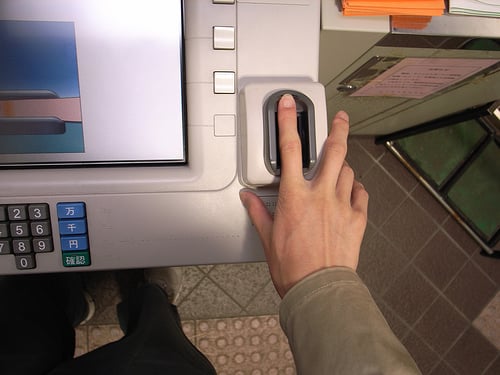Biometrics Restriction Defeated by New Hampshire Legislature
03/19/2010 -A bill that would have severely restricted the use of biometrics by private businesses and government agencies in New Hampshire was overwhelmingly defeated yesterday by the state legislature.
The bill introduced in Januarywould have banned the use of biometrics in identification cards issued by the state and private entities, except in the case of employee identification cards. The bill also barred a state or private group from requiring individuals to submit biometric information as a condition for doing business.
Biometrics refers to the practice of verifying a person's identity through biologically unique identifiers. The most commonly used biometric is a finger print, although other biometrics include DNA, facial features, iris recognition, and vocal patterns.
The bill sponsored by Republicans Rep. Neal Kurk and Rep. Daniel Itse wasdefeated 267-39 by division vote, which only records raw numbers. Prior to the vote, a representative from the Alexandria, Virginia-basedSecurity Industry Associationtraveled to Concord to lobby Kurk and other lawmakers for the bill's defeat.
“We are very pleased that New Hampshire residents will not be denied the use of this important security technology,” SIA Director of Government Relations Don Erickson said in a statement yesterday. “This bill grew out of misperceptions regarding supposed threats to privacy, but biometrics can make people safer while, at the same time, protecting their identities."
Erickson told Security Management that SIA opposed the bill on multiple grounds. He said the bill's language was too broad and would deprive businesses of providing their customers with a cutting edge technology that promotes security and privacy rather than eroding it. In January, Ericksonissued a statementwith similar arguments, stating the bill would irresponsibly restrict the use of biometric identity verification by businesses, schools, colleges, hospitals, and government agencies. He contended the legislation "would expand the reach of state government into the decision making authority of local governments and private, tax-paying businesses."
Long term strategic concerns also factored into SIA's lobbying in New Hampshire. Erickson said SIA also worried that the New Hampshire bill could cause a domino effect to occur, with more and more states enacting similar legislation that could culminate in federal limitations.
Lillie Coney, associate director of the Electronic Privacy Information Center, a digital civil liberties group in Washington, D.C., said the bill's defeat creates an opportunity for New Hampshire to discuss protecting personal information.
"Policy decisions around the collection, retention, use, and sharing of personal identifiable information need thorough debate," she said. "Ultimately, when personal information is involved it should be protected by fair information practices." TheCode of Fair Information Practices, according to Coney, outlines the rights individuals should have to their personal information .
"One of the things SIA members do very well with customers is they explain how the technology is used, how [information] is stored, how it's collected, and overall how it promotes privacy," Erickson said.
